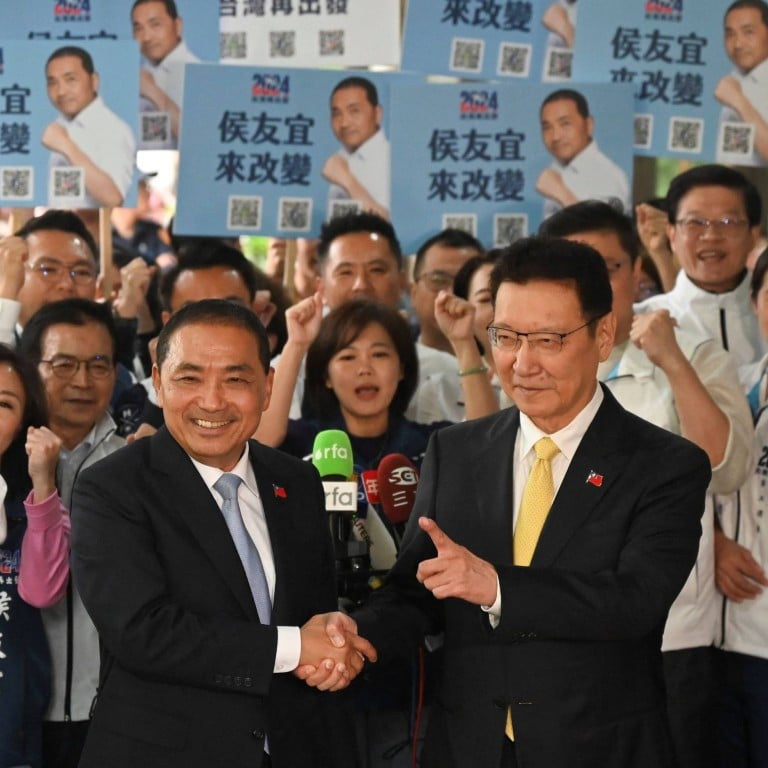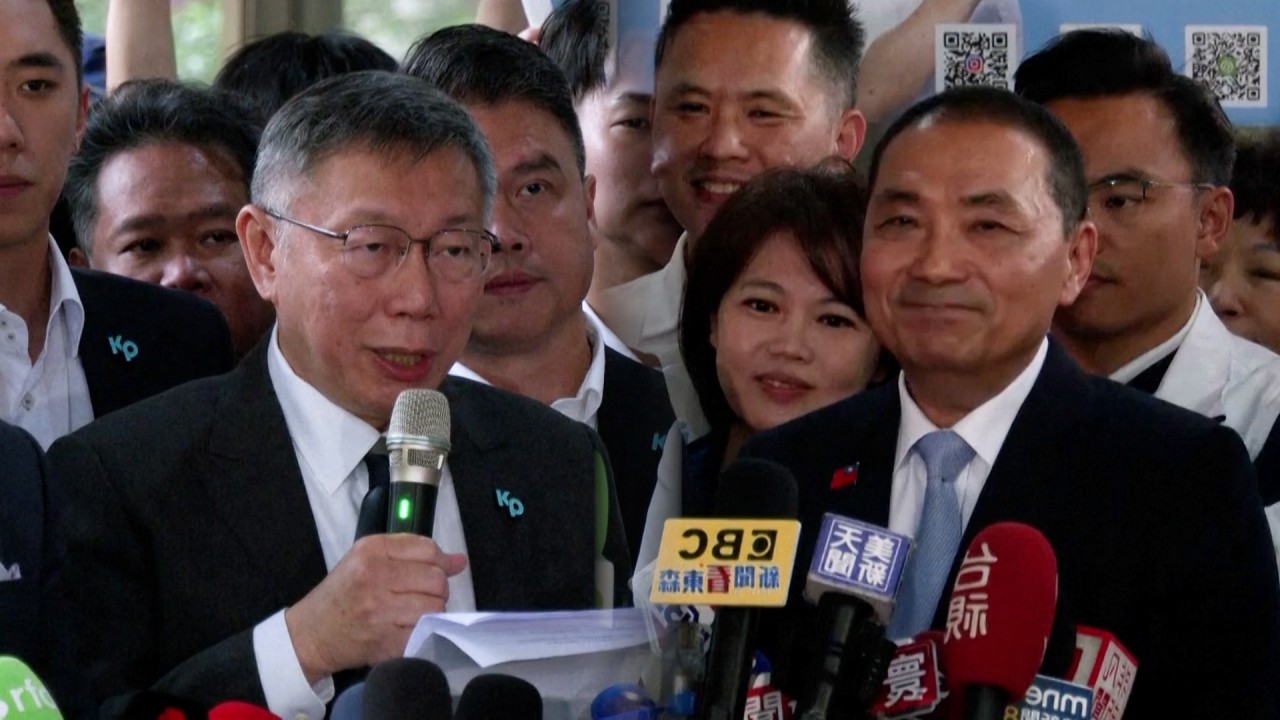
Taiwan election: KMT’s Hou Yu-ih climbs in polls after collapse of joint ticket, but DPP’s William Lai still leads
- Support for Beijing-friendly Kuomintang ticks up despite breakdown in efforts to team up with Taiwan People’s Party in presidential race
- Democratic Progressive Party candidate William Lai Ching-te remains the front runner, while TPP’s Ko Wen-je slumps in latest surveys
Lai received the support of 34 per cent of respondents in a poll conducted from November 24–26 by the mainland-friendly broadcaster TVBS.
Other polls conducted right after talks for the KMT and TPP to run on the same ticket collapsed showed similar results, with Hou performing better than expected and the gap between Lai and Hou narrowing.
Taiwan poll: DPP senses win with Lai-Hsiao ticket but Beijing might see ‘war’
A Gallup survey released on Tuesday put the gap between Lai and Hou at a fraction of a percentage point, with Lai slightly ahead at 31.01 per cent while Hou received the support of 30.94 per cent of respondents. Another poll by the KMT-leaning United Daily News released on Tuesday saw Hou lagging 3 percentage points behind Lai.
Beijing claims self-governed Taiwan as part of its territory and seeks peaceful reunification with the island, but it has not ruled out the possibility of using force.
Most countries, including the United States, do not see Taiwan as an independent state, but many are opposed to a change in status quo by force.
Hopes for the two opposition parties to team up were dashed on Friday morning due to disagreements about who would be the presidential candidate on a unity ticket.
The news has probably left Beijing uneasy, as the opposition’s failure to forge a unity ticket is expected to yield an easier path for a DPP victory.
Lai has promised to adopt incumbent leader Tsai Ing-wen’s foreign policy approach, aligning closer with Washington and its allies and seeking a higher standing for the island in the international community.
Zhu Songling, a Taiwan affairs specialist at Beijing Union University, said there were various reasons behind Hou’s rise in the polls, and the pairing of Hou and Jaw helped the KMT consolidate the party’s traditional support base.
Zhu said the pairing of Hou and Jaw had largely satisfied the island’s mainland-friendly voters, who were also pleased by the KMT’s decision to put Han Kuo-yu at the top of its legislator-at-large list, positioning the popular former Kaohsiung mayor to become president of the island’s Legislative Yuan if the party wins a majority of the seats.
“During the process of negotiating the joint ticket, Hou was very humble and courteous, and the public can feel that he was trying his best to form the opposition alliance,” Zhu said. “This works as an additional point for Hou.”
Could Taiwan’s ‘white’ knight break the island’s blue-green mould?
Meanwhile, support for Ko continued to slump, which Zhu said might be the result of his choice of running mate. Wu is the daughter of powerful businessman Eugene Wu, formerly chairman of Shin Kong Financial Holding Co.
Zhu noted that Ko’s supporters – largely young and educated voters – might be disappointed with the decision to put Wu on the ticket because he had previously said the island’s government should not be controlled by businesses and financial organisations.
Zhu said it remained to be seen whether Hou and the KMT could keep up the good momentum.
“In the near future, whether Hou and the KMT can close the gap will depend on their campaign policy proposals and whether they can attract voters’ ongoing attention by creating and leading the discussion of issues during the campaign period.”


